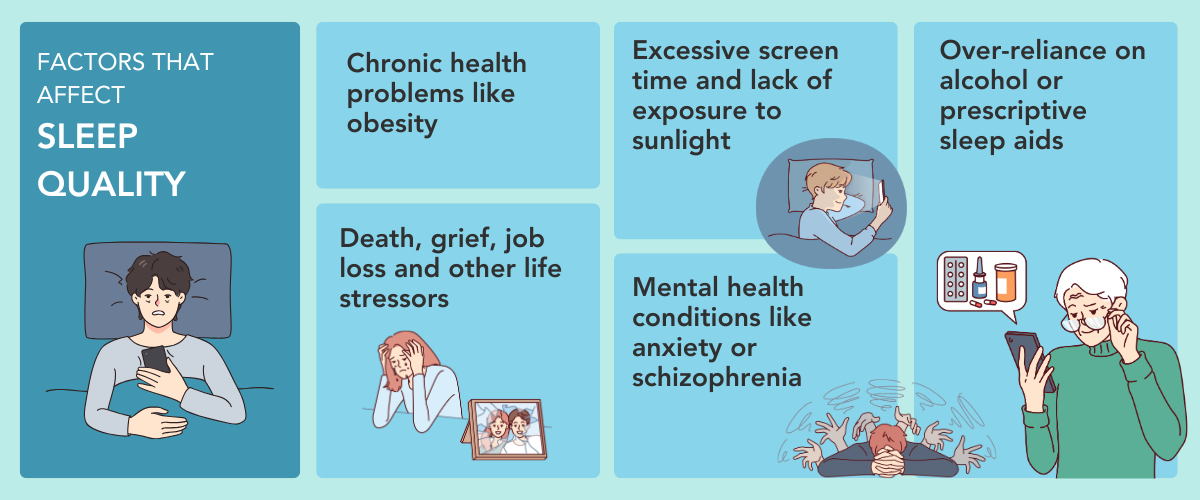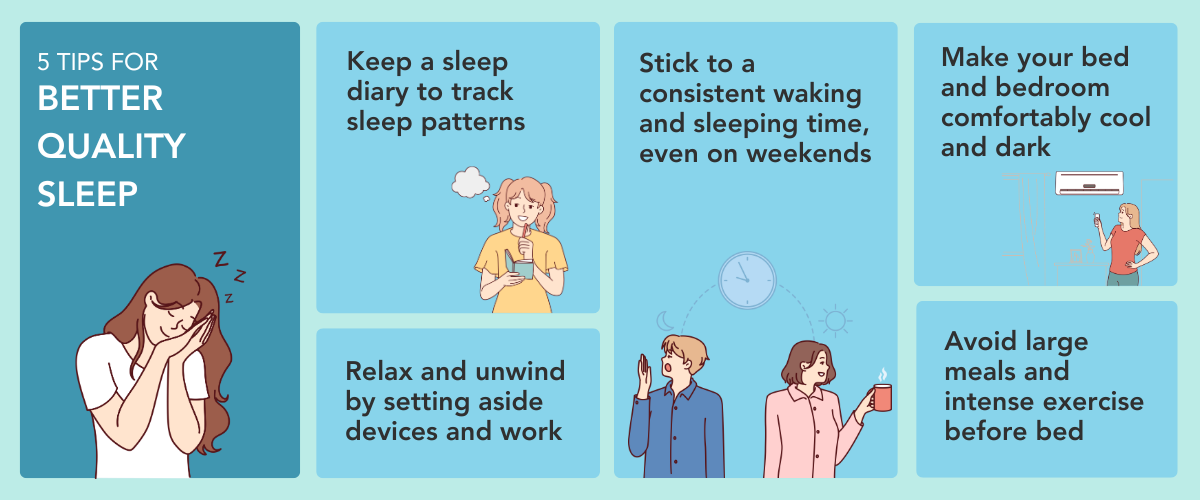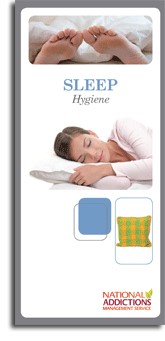Poor sleep often goes hand-in-hand with physical and mental health issues. Here are some possible reasons you may have trouble sleeping:

- Major life stressors: Stressful events such as the death of a loved one, job loss or divorce can also trigger sleep problems.
- Chronic health problems: Health problems like obesity can increase the risk of developing sleep disorders such as obstructive sleep apnoea. This condition leads to disruptions in breathing during sleep, interfering with a good night's rest.
- Excessive screen time: Blue light from phones, tablets and computer screens tricks the brain into thinking its day time. This can throw off the body's biological clock by reducing melatonin production and making it harder to fall asleep. In urbanised Singapore where many spend their days working indoors, limited exposure to natural sunlight can contribute to poor sleep quality.
- Over-reliance on alcohol or prescriptive sleep medications: These substances may help you fall asleep at first, but your body can build up tolerance over time, needing higher doses to work the same way. Withdrawal symptoms may kick in when people try to stop using these sleep aids, triggering alertness and disrupting sleep.
- Mental health conditions: Underlying mental health conditions can also lead to sleep disturbances. Studies show that people with mental health conditions such as depression and anxiety are more likely to report poor sleep and a shorter duration of sleep compared to people with no mental illness. Persons with generalised anxiety disorder may be kept up at night by excessive ruminations while persons with schizophrenia experience disturbing hallucinations and delusions that make it harder to fall asleep.
Left unchecked, chronic sleep problems can take a serious toll on both mental and physical health.
"Experiencing a prolonged period of poor sleep can lead to significant worrying and frustration, and it has been linked to an increased risk of mental health issues," explains Dr Goh Shih Ee, Consultant at the Department of Mood & Anxiety.
Insomnia can affect the amygdala, the part of the brain that regulates emotions such as fear, anger and anxiousness. Over time, this can lead to the development of mental health issues like depression and anxiety.
In one study, participants who got only 4.5 hours of sleep per night reported feeling higher levels of stress, sadness and anger. They were also more mentally exhausted compared to those who had more sleep.
The effects extend beyond mental well-being. Research has shown that chronic sleep deprivation is linked to a higher risk of physical chronic health conditions such as obesity, heart disease, high blood pressure, stroke and diabetes.
The Health Promotion Board recommends:
- 8 to 10 hours of sleep daily for teenagers aged 14 to 17
- 7 to 9 hours for adults aged 18 to 64
- 7 to 8 hours for elderly above the age of 65
As people age, their sleep patterns naturally change. Insomnia - the persistent lack of or reduced ability to sleep - is more common in older adults. Shifts in the internal body clock and increased health problems can make it harder for the elderly to fall asleep.
Older adults are also more likely to have chronic pain, less physical activity and exposure to daylight. Some are at an increased risk of sleep disorders like sleep apnoea and restless leg syndrome which can further disrupt sleep.
It's important to note that getting a good night's rest isn't just about the number of hours. Both quantity and quality are important. Some people feel refreshed with six or seven hours of uninterrupted, high quality sleep. At the same time, others may still feel groggy after spending 12 hours in bed if they have been tossing and turning all night.

If you wake up feeling fatigued despite having enough hours in bed, sleep issues or insomnia could be interfering with your night's rest. That is because the quality of your sleep matters as much as the druation.
Set yourself up for quality sleep with expert tips from Dr Natarajan Kathirvel, Senior Consultant at IMH:
Keep a sleep diary: Tracking your sleep patterns makes it easier to spot factors that may be sabotaging sleep. Consider including the following in your sleep diary - the time you went to bed and woke up, total sleep hours, perceived quality of sleep, time you spent awake and medications taken.
Stick to a consistent routine: Sleep and wake at the same time every day, including over the weekends or holidays. Spend some time relaxing to unwind before bedtime. Try muscle relaxation, a warm shower or a milky drink for example.
Make your bed and bedroom comfortable: The room should not be too cold or hot, nor too bright.
Get into a relaxed mood: Say no to screen time just before bedtime to avoid blue-light exposure and overstimulation from social media. Avoid using your bedroom for work or other activities that may keep your mind alert.
Make lifestyle adjustments: Avoid consuming large meals, coffee, tea, nicotine or alcohol in the few hours before your bedtime as it will disrupt your sleep. Regular exercise, preferably in the morning, late afternoon or early evening, can also help.
Related Brochure:
